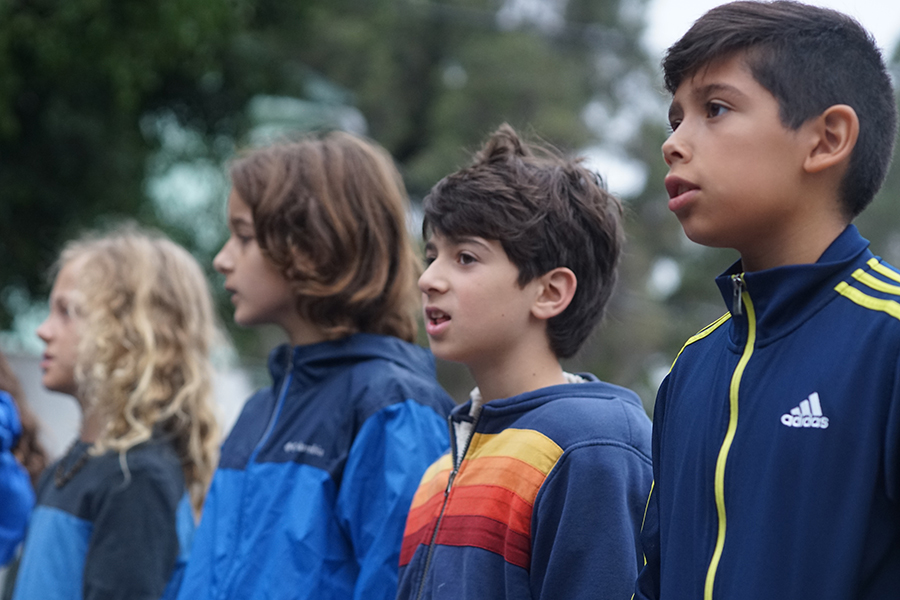Hand-in-hand, We are on a Journey of Diversity, Equity, and Inclusion
Position Statement
The faculty, staff, administration, and board of WSSD are committed to actively increasing our understanding of our history, serving equity in race, gender, ancestry and national origin, religious belief, sexual orientation, ability, and in civic discourse.
We recognize the historical and ongoing impact of racism on our continent and the injustice and discrimination historically marginalized people face. We understand that racial justice in education is a moral imperative.
Rudolf Steiner, founder of anthroposophy in the early 20th century, offered profound insights that support the value and development of each human being. These inspirations inform our organization’s history and worldviews.
We also acknowledge that Rudolf Steiner made assertions regarding race and ethnicity that have caused harm. Racism, explicit or implicit, stands in direct conflict with the fundamental principles of anthroposophy and our educational work at WSSD.
We know we have far to go as individuals, a school, and a community in our understanding of racial oppression and social justice, and in transforming ourselves, our biases, and our systems. We are striving to do better; to transform education and support the growth and development of the children in our care. It is our task to uphold the idea of wholeness that Rudolf Steiner gave to us, and let go of what may have caused harm.
The Waldorf School of San Diego strives to provide an education that meets the needs of the whole child. Teachers trained in Rudolf Steiner’s method of inquiry and Waldorf education, work in freedom: freedom to use a variety of curricula to meet the needs of students in a developmentally appropriate way. With this freedom, and with each Teacher’s striving, we hope to have an impact in addressing the historical and ongoing injustices of our culture.
We humbly seek a path forward that uplifts the dignity of every human being.
Recent Major Developments in EID at WSSD
1. With the help of Alma Partners, and in line with AWSNA and our fellow Waldorf Schools in Southern California, we have recently conducted a comprehensive audit to assess our current practices and identify areas for improvement. This audit has provided valuable insights that are guiding our ongoing efforts. From this audit, comes an assembled working group of dedicated individuals from the different realms of the school to help strategically manage the audit recommendations.
2. Our school has also taken the next step in Land Acknowledgements. This past summer, our full faculty were engaged in an in-service led by local queer and indigenous educators from the Queer Sol Collective. We have started and fostered relationships with Payómkawichum and Kumeyaay educators to work our students from early childhood to high school. With the guidance of Ms. Martha Rodriguez, we are working on awareness and visibility of Kumeyaay land, by naming our renovated annex building and our grade school garden with Kumeyaay names. Lastly, we have been holding monthly fundraisers; with monies collected being offered to the Tipey Joa Native Warriors.
Training and Workshops
Our faculty and staff have participated in extensive diversity and inclusion training sessions. These workshops are designed to enhance understanding and foster a more inclusive school culture.
More importantly, PG and Admin will continue to work together to share training opportunities to help all teachers diversify ideas and methodologies to incorporate into the classroom – highlighting the needs around gender identity, social justice, and neuro-diversity.
Audit Recommendations
Key Insights from the Diversity and Inclusion Audit
The recent Alma Partners audit has provided several key recommendations to enhance our diversity and inclusion practices. Firstly, it emphasized the need for ongoing cultural competency training for all staff members. Additionally, it suggested the establishment of a diversity council (“the working group”) to oversee, implement and guide initiatives generated from this report. The audit also highlighted the importance of creating more inclusive curricula that reflect diverse perspectives. Finally, it recommended regular assessments to measure progress and ensure accountability in our efforts.
The audit report has helped us identify work to be done in the following areas:
1. CURRICULLUM
2. COMMUNITY LIFE
3. POLICIES & PROCEDURES
Join Our Diversity and Inclusion Efforts
Have you witnessed or experienced an incident, discussion, or action regarded as an instance of indirect, subtle, or unintentional discrimination against members of a marginalized group? You can anonymously report this via our Community Concern Form, and a member of EID/Admin will receive your feedback.



